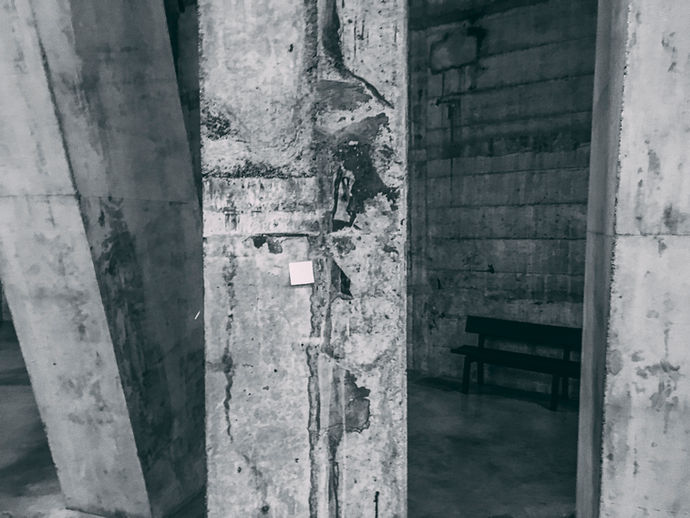Riccardo
Rizzetto
Studio
If Only These Walls Could Talk at Tate Modern (London, UK), 2017.
The happening took place spontaneously in the Tanks Hall at Tate Modern, as an experiment in site-writing exploring how words and narrative can reshape the perception of space.
Born from a conversation on “the lightest way” to transform an environment, the project used a series of yellow post-it notes scattered across the walls, each bearing short, ambiguous statements inviting viewers to reconstruct a fictitious story.
This distribution of words and ideas transformed the transitional hall into a space of interaction and speculation. Visitors traced their own paths through the fragments, building meaning through curiosity and association. The installation explored language as an artistic medium and as a subtle yet powerful tool of influence, echoing how mass media shapes public opinion through repetition and visibility.
The ephemerality of the post-its, never meant to last, became a metaphor for the fragility and volatility of perception itself: how easily opinions shift, how quickly words can transform meaning. Both a critique and a celebration of social media’s performative nature, If Only These Walls Could Talk questioned the boundaries between message, object, and space.
“There is nothing nobler than being able to capture people’s attention by speaking, directing their opinions, distracting them from what is wrong and leading them to what we value. This is the only gift that has always received recognition and value among all free peoples, and especially in states governed in peace and in balance.”
Cicerone, 55 b.c.
Happening. With Yara Boulos













